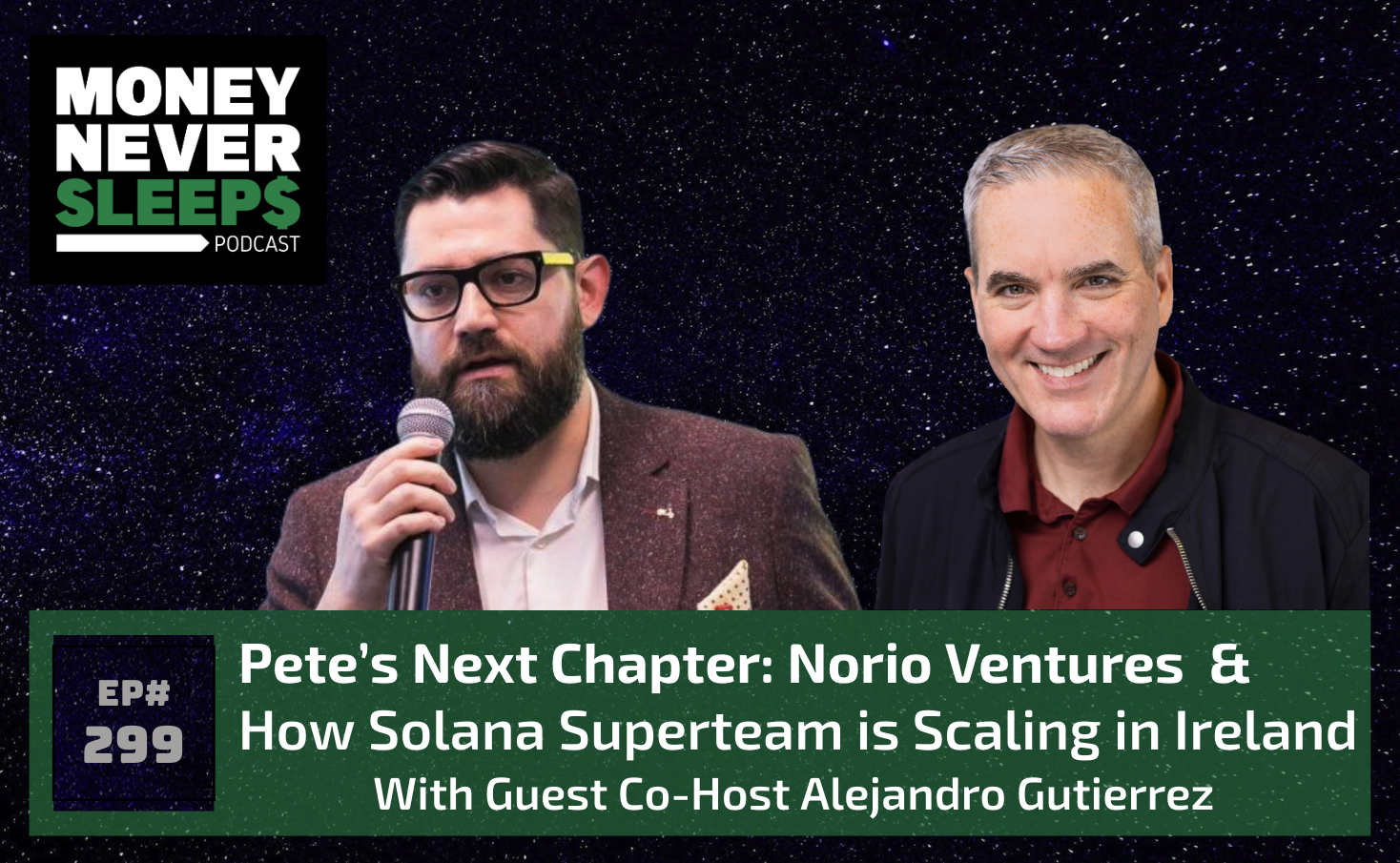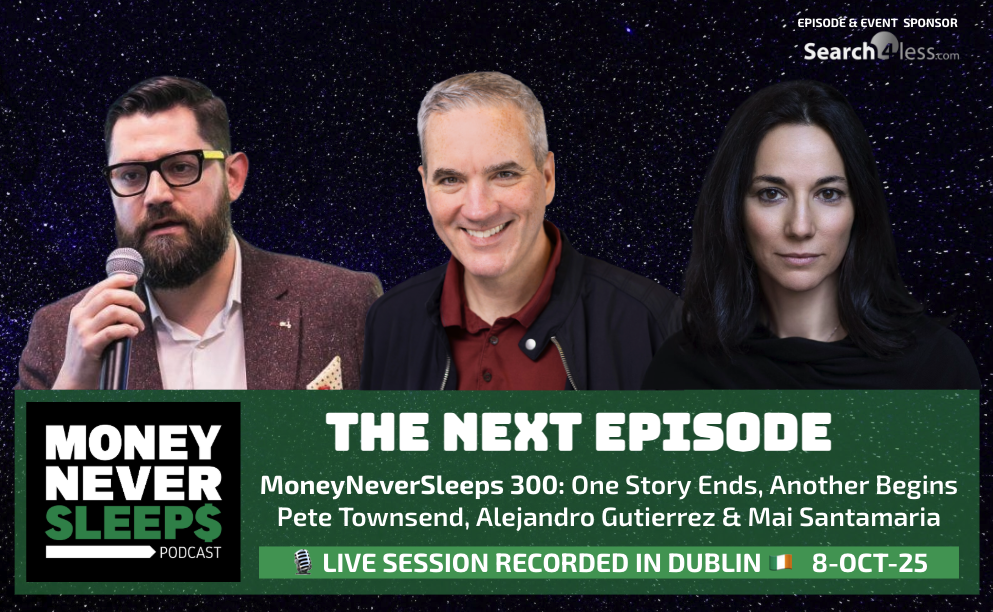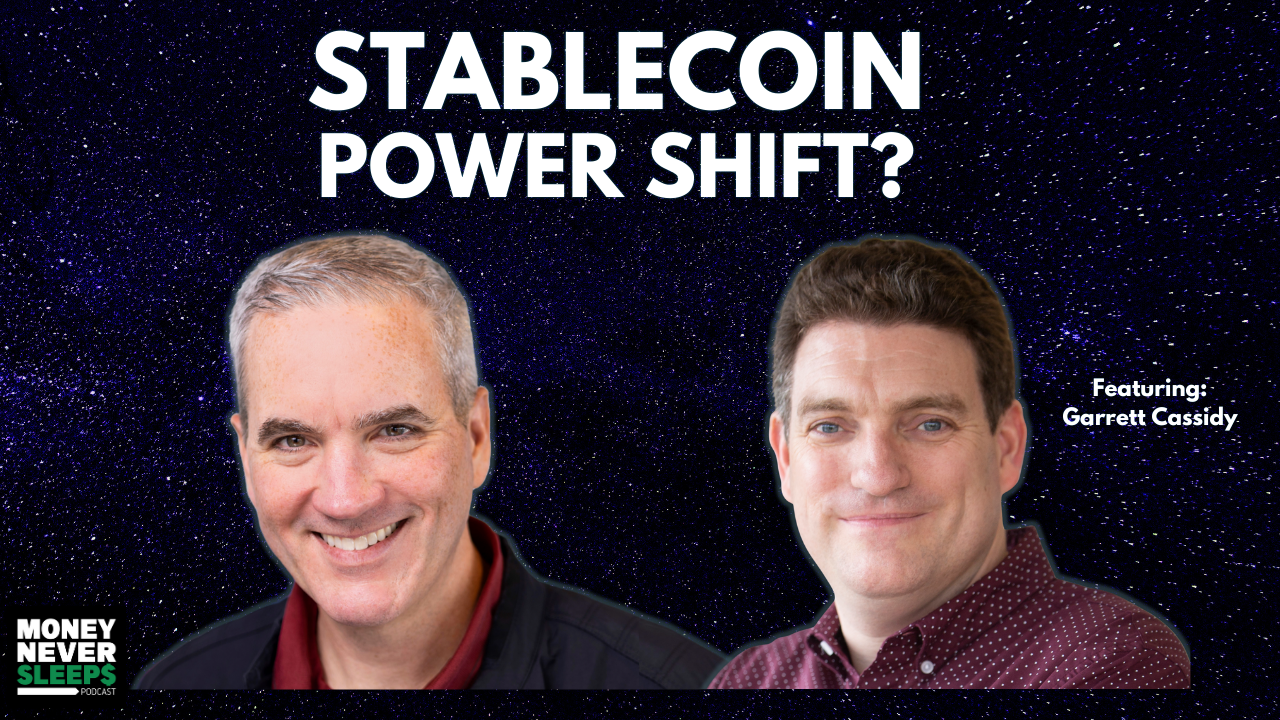184: In da Club | Staxe | Luis Martinez and Martin Liebrich


Luis Martinez and Martin Liebrich are the co-founders of Staxe. Staxe is enabling music and creative production economies on web3 so that anyone can become an owner of music and creative productions, support their favorite artists, and become a part of their success.
This episode of MoneyNeverSleeps is sponsored by Philip Lee, one of Ireland’s fastest-growing corporate law firms and expert advisors at the heart of the Dublin and London start-up, fintech and crypto communities.
Staxe are the seventh of the founding teams forming the Launchpool Web3 Techstars Accelerator Class of 2022 that we’ve got on the show over the next month.
In this episode, Pete Townsend talks with Luis and Martin from Staxe about:
- Luis leaving DJ school to become a trader before going down the crypto rabbit hole
- Martin’s earliest days of programming on the Commodore 64
- The lightbulb moment on the problem to solve with financing creative productions
- How creative productions are like micro-startups
- Blockchain as a social coordination tool
- The big opportunity for Staxe with massive creative productions
HIGHLIGHTS:
Luis Martinez on leaving DJ school to become a trader:
“I had this dream of being able to play around with music and synthesizers and bending sound with things like oscillators. I eventually got into DJ school and started learning how to use and manipulate the sounds.
“But somewhere along the way, my family came into this, and being a bit traditional as I'm from Mexico, the baby boomer generation had the traditional baby boomer way of looking at what your career should be. You need to study finance, law or medicine, study hard, work hard and build.
“Being a DJ bending sounds is not part of that. So, I had to adapt my dreams and vision of what my career would be. I started studying finance, and very early in my career got into the trading rooms as a trader.”
Luis Martinez on going down the rabbit hole:
“Sometime around 2017, I started venturing into the crypto space, and learning about programmable money was what really caught my eye - it was so interesting. I remember being in the trading desk and looking at the libertarian side of what you could do with programmable money. At the same time, I was looking at a trading desk where we had more compliance people watching over us than traders.
“So, it was like, okay, the libertarian thing is out there in crypto, but here in the trading room, we’re behind these four walls - I needed to do something about it. That’s what sent me down the rabbit hole.”
Luis Martinez on the lightbulb moment that led to the Staxe vision:
“One of my friends was a booking manager, and we had all of the pieces in place to put a gig together – we had a really good artist, we had the community and we had interest in the event that would sell out the venue we had in mind.
“But we had a chicken and egg problem: the venue would only give us a date if we paid them upfront, but we couldn’t print and sell the tickets to raise the funding until we had a date and a venue.
“That was the lightbulb moment when we said, okay, we need to find a way to coordinate capital so that these gigs happen, and it just didn't make sense to us that the capital couldn't be coordinated.
“So, we started off with a project called B-Live, and that has evolved since then into what we call Staxe.”
Martin Liebrich on meeting Luis Martinez at a pitch session in Crypto Valley (Zug, Switzerland):
“It was 2017 and everything was going crazy. Although I didn’t own any crypto, I found it interesting, and I was pretty sure back then crypto is here to stay. That's when I met Luis, as I was listening to a few of the startup pitches at a conference, and one of the ones I found interesting was Staxe.
“In the beginning, the idea was just to invest in Staxe, but then over time, we found that we would complement each other quite well. So, it became more than just an investment.”
Luis Martinez on how he and Martin Liebrich complement each other:
“We both bring ideas on what we want to tokenize, the value of tokenizing it, and the utility behind such tokenization. Then at the design level, Martin brings in what can and cannot be done. Martin is a realist, and I’m the dreamer.
“We mash ideas on the table and comes from that process is a much more landed and realistic set of tokenization features.”
Luis Martinez on what Staxe is:
“Staxe is a tokenization tool. We bring together creatives and their economies and enable them in web3, mostly music economies. We work with royalties from recorded music, live events, and ticketing as the main sources of income.”
“Our goal is to find those creative assets that will produce future income in a determined amount of time and that future income drives the potential for tokenizing something today.
“Staxe is effectively a two-sided marketplace where we supply assets from the creative space. Collectors and investors buy those assets because they want to share in the success of their artists, of their songs, of their creatives, as well as having some unique interactions along the way.”
Luis Martinez on creative productions as micro-startups:
“The DNA of Staxe is to empower creatives. Whether it's a promoter behind the gig or the artist that needs the studio time to create their art. They’re almost like tiny startups; each one of their productions need financing for that studio time, for their bass player, for example. They need to invest in the video which is going to help them get the word out for what they just created and then market it.
“It’s like a micro-startup set up and they need financing in order to produce more, and more often.”
Martin Liebrich on how scaling is enabled by UX and not the hardcore technical challenges:
“The big hurdle is getting people to use the Staxe dapp (distributed app) and to make it easy for them because we’re not a DeFi protocol where you might have a bunch of degens who are all experienced with using crypto and web3 wallets.
“We have music lovers, and they might have no clue about crypto and wallets. Enabling all of this is a front-end UI/UX design problem, much less than a hard technical one.”
Luis Martinez on the big opportunity for Staxe with massive creative productions and blockchain as a social coordination tool:
“We’ve started working with music festivals to create their NFTs and we’re unlocking the potential for the massive market behind festivals.
“Just think about a festival, you’ll have 5,000 to 10,000 people, and in some cases up to 200,000 people for the big festivals - audiences of that size already grouped together for the same reason or identity, a specific artist or music genre.
“Music has this power – specifically live music – to group like-minded people together, showing up to concerts, and you can feel the energy there. What we see as a big picture is if these audiences could be brought over to web3, and we're seeing that they want to be taken over to web3, then you have a critical mass to address.
“There are so many things to do behind that with fan access and bringing them closer to the artists they love. We see blockchain as a social coordination tool coordinating the activities of these big communities with NFTs and other kinds of tokens with the incentives that these bring.”
Martin Liebrich on the trustless challenge:
“As we’re bringing music rights into blockchain, we’re effectively bringing real-world assets into blockchain, and this is still quite an unsolved problem (in the majority) to do this in a truly decentralized and trustless way. In many of these protocols, you still have to trust somebody that they will enforce some legal contract.
“We’re working on how we can really improve on this, to make the whole context (of music rights) truly decentralized and trustless.”
Luis Martinez on the critical inflection point of the integration of music and web3:
“The challenge is to make as many creatives and fans aware of this opportunity, and it's mostly an educational challenge. That means a lot of evangelizing and getting them to understand that you don’t have to listen to music the way that Spotify or YouTube have told us we should. When you can own your music, you can share in the success of your artists.”
LINKS:
Connect with Luis Martinez and Martin Liebrich and learn more about Staxe
Episode title inspired by ‘In da Club’ by 50 Cent
Leave a review and subscribe on Podchaser| Apple Podcasts | Spotify| Google| Overcast
Check out our MoneyNeverSleeps website
Follow MoneyNeverSleeps on Twitter
Follow Eoin Fitzgerald on Twitter
Follow Pete Townsend on Twitter
Get in touch at info@moneyneversleeps.ie
--- Support this podcast: https://anchor.fm/moneyneversleeps/support


































